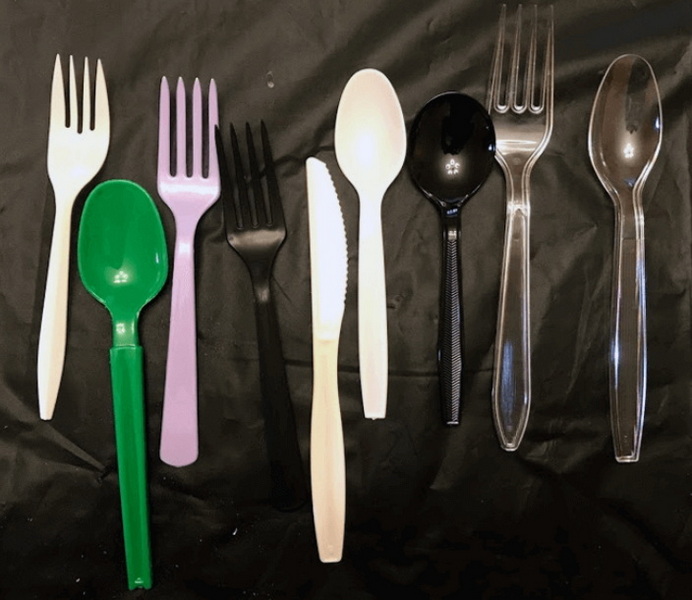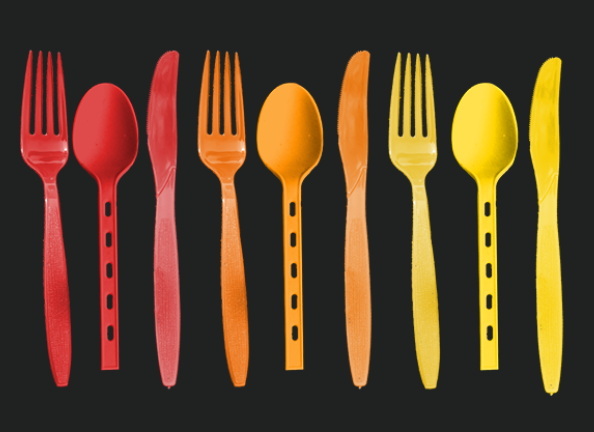
Content Menu
● Introduction to Disposable Spoon Plastic
>> Environmental Impact
● Challenges in Recycling Disposable Spoon Plastic
>> Inconsistent Materials
>> Unorthodox Shape
>> The China Conundrum
● Alternatives to Disposable Spoon Plastic
>> Reusable Utensils
>> Biodegradable Utensils
● How to Promote Recycling and Sustainability
>> Understanding Local Recycling Rules
>> Encouraging Reuse
>> Supporting Sustainable Manufacturing
● Creative Recycling and Upcycling Ideas
>> Crafting with Plastic Utensils
>> DIY Projects
● Community Initiatives and Education
>> School Programs
>> Community Events
● Technological Innovations in Recycling
● Conclusion
● FAQ
>> 1. What types of plastic are disposable spoons made from?
>> 2. Can disposable plastic spoons be recycled?
>> 3. What are the environmental impacts of disposable plastic spoons?
>> 4. What alternatives are available to disposable plastic spoons?
>> 5. How can individuals promote sustainability with disposable plastic spoons?
The question of whether disposable spoon plastic can be recycled is a complex one, involving both environmental concerns and practical recycling processes. Disposable plastic spoons, like other single-use plastics, contribute significantly to global plastic waste and pollution. In this article, we will delve into the challenges of recycling disposable spoon plastic, explore alternatives, and discuss how individuals and communities can make a difference.

Introduction to Disposable Spoon Plastic
Disposable plastic spoons are made from various types of plastics, such as polypropylene (PP), polystyrene (PS), and sometimes biodegradable plastics. These materials are chosen for their durability and cost-effectiveness, but they pose significant environmental challenges. The widespread use of disposable plastic spoons in fast food, takeout, and outdoor events has led to a substantial increase in plastic waste.
Environmental Impact
The environmental impact of disposable plastic spoons is substantial. They are not biodegradable and can take hundreds of years to decompose. Moreover, they often end up in oceans and landfills, contributing to pollution and harming wildlife. For instance, marine animals may mistake plastic spoons for food, leading to ingestion and potential harm.
Challenges in Recycling Disposable Spoon Plastic
Inconsistent Materials
One of the primary challenges in recycling disposable spoon plastic is the inconsistency in materials used. Most plastic utensils are made from polystyrene (#6 plastic), but some are made from PET (#1 plastic) or polypropylene (#5 plastic). Without clear labeling, it's difficult to determine which type of plastic is being used, making recycling more complicated. This inconsistency leads to confusion among consumers and recycling facilities, often resulting in these items being sent to landfills.
Unorthodox Shape
Plastic utensils, including spoons, have shapes that can jam machinery in materials recovery facilities (MRFs). This makes them difficult to process efficiently, often leading to contamination and rejection from recycling streams. As a result, many recycling programs do not accept plastic utensils, further complicating the recycling process.
The China Conundrum
Historically, many countries exported their plastic waste, including rigid plastics like utensils, to China for recycling. However, China's decision to stop importing most plastic waste in 2018 significantly impacted global recycling practices. This shift has forced countries to develop their own recycling infrastructure or find alternative solutions for managing plastic waste.
Alternatives to Disposable Spoon Plastic
Given the challenges in recycling disposable spoon plastic, alternatives are becoming increasingly popular:
Reusable Utensils
Reusable utensils made from materials like stainless steel, bamboo, or durable plastics offer a sustainable alternative. These can be washed and reused multiple times, significantly reducing plastic waste. Many companies are now promoting reusable utensil sets as part of their sustainability initiatives. For example, some restaurants provide customers with reusable utensils as part of their takeout service.
Biodegradable Utensils
Biodegradable utensils made from materials like cornstarch or sugarcane are another option. While they are not always compostable in home settings, they offer a more environmentally friendly alternative to traditional plastics. These biodegradable options are gaining traction in the food service industry, particularly in events and festivals where waste management is a concern.

How to Promote Recycling and Sustainability
Understanding Local Recycling Rules
It's essential to understand what can and cannot be recycled in your local area. Some communities may have specialized programs for certain types of plastics, so checking with local recycling centers is crucial. This knowledge helps ensure that recyclable materials are properly sorted and processed.
Encouraging Reuse
Promoting the use of reusable utensils is key to reducing plastic waste. This can be achieved by carrying personal reusable sets when dining out or ordering takeout. Many cities are now implementing policies to encourage the use of reusable utensils, such as banning single-use plastics in public spaces.
Supporting Sustainable Manufacturing
Encouraging companies to adopt sustainable manufacturing practices, such as using recycled materials or biodegradable alternatives, can also help reduce plastic waste. Consumers can support these efforts by choosing products from companies with strong environmental policies.
Creative Recycling and Upcycling Ideas
While disposable plastic spoons may not be recyclable in traditional recycling streams, creative upcycling can give them new life. Here are some ideas:
Crafting with Plastic Utensils
Plastic utensils can be repurposed into creative crafts, such as jewelry, plant markers, or decorative items. This not only reduces waste but also fosters creativity and innovation. For example, artists have used plastic utensils to create large-scale sculptures that highlight the issue of plastic pollution.
DIY Projects
Using plastic utensils in DIY projects like bird feeders or wind chimes can be a fun and creative way to reuse them. These projects are great for community events or educational programs aimed at raising awareness about plastic waste.
Community Initiatives and Education
Community initiatives play a crucial role in promoting sustainability and reducing plastic waste. Educational programs can help raise awareness about the environmental impact of disposable plastics and encourage individuals to adopt sustainable practices.
School Programs
Schools can integrate environmental education into their curricula, teaching children about the importance of recycling and the dangers of plastic pollution. Hands-on activities, such as upcycling workshops, can engage students and foster a sense of responsibility towards the environment.
Community Events
Community events, such as clean-up drives and environmental fairs, provide opportunities to educate the public about sustainable practices. These events can also serve as platforms for promoting local businesses that offer eco-friendly alternatives to disposable plastics.
Technological Innovations in Recycling
Advancements in technology are offering new solutions for recycling complex plastics like those used in disposable utensils. For instance, chemical recycling processes can break down plastics into their raw materials, which can then be reused to make new products. This technology holds promise for managing plastic waste more effectively.
Conclusion
Disposable spoon plastic poses significant environmental challenges due to its non-recyclable nature and contribution to plastic pollution. While traditional recycling may not be feasible, alternatives like reusable and biodegradable utensils offer promising solutions. By adopting sustainable practices and supporting innovative recycling methods, we can reduce plastic waste and work towards a more environmentally conscious future.

FAQ
1. What types of plastic are disposable spoons made from?
Disposable spoons are typically made from polypropylene (PP), polystyrene (PS), and sometimes biodegradable plastics. These materials vary in recyclability and environmental impact.
2. Can disposable plastic spoons be recycled?
Generally, disposable plastic spoons are not recyclable due to inconsistent materials and their shape, which can jam recycling machinery. However, some specialized programs may accept certain types of plastic utensils.
3. What are the environmental impacts of disposable plastic spoons?
Disposable plastic spoons contribute to pollution, harm wildlife, and take hundreds of years to decompose. They often end up in oceans and landfills, exacerbating environmental degradation.
4. What alternatives are available to disposable plastic spoons?
Alternatives include reusable utensils made from stainless steel or bamboo and biodegradable utensils made from materials like cornstarch. These options reduce plastic waste and offer more sustainable choices.
5. How can individuals promote sustainability with disposable plastic spoons?
Individuals can promote sustainability by using reusable utensils, supporting companies that adopt eco-friendly practices, and engaging in creative upcycling projects to give new life to plastic waste.

















